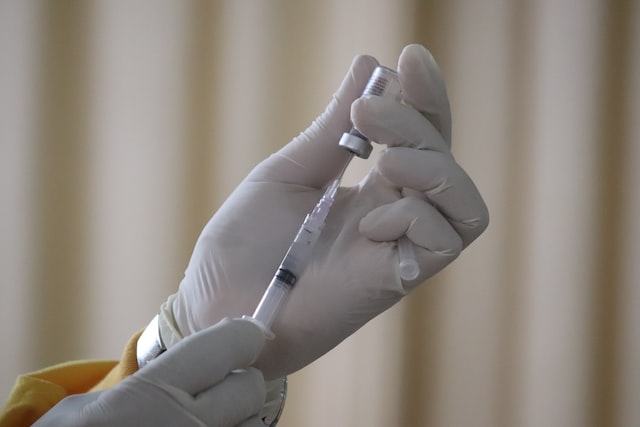

The same technology used to develop the Moderna and Pfizer COVID-19 vaccines is now being used to develop a vaccine for skin cancer. Moderna and Merck recently submitted new data on the efficacy of their cancer vaccine. The results show that when the vaccine is used in combination with Merck’s cancer immunotherapy drug Keytruda, it can reduce the risk of certain skin cancers from returning or patient deaths by 44% compared with Keytruda alone.
The news was met with a fervor of excitement. This marks the first time a mRNA-based cancer vaccine has proven effective in a randomized study. If the results are consistent across larger trials, the vaccine could soon be available to patients. But there are several challenges ahead.
The study enrolled just 157 people with a high risk of their skin cancer returning. All of the patients had undergone surgery to remove any signs of their cancer. The new vaccine is designed to prevent the cancer from returning by teaching immune cells how to recognize and destroy cancer cells.
Moderna had been working on various types of cancer treatments before the pandemic, but the global health crisis forced the company to shift its focus to making a vaccine for COVID-19. But the novel coronavirus ended up teaching researchers a lot about cell theory and the properties of immunity.
The new cancer vaccine was developed using what’s known as messenger-RNA technology, the same approach that was used to make the two most effective COVID-19 vaccines. But, unlike the COVID-19 vaccines, the cancer vaccine isn’t meant to prevent the disease. It’s more of a therapy that can help patients who already have cancer.
Each vaccine is tailored to the individual patient. Scientists perform a biopsy of the patient’s tumor and expose the tissue to artificial intelligence to identify the mutations that allow the cancer cells to grow and multiply. They then insert mRNAs, which contain instructions for making proteins designed to fend off the cancer, into a lipid nanoparticle delivery system. The entire process takes about eight to 10 weeks, according to Moderna.
“The manufacturing process starts with the identification of genetic mutations in a patient’s tumor cells that could give rise to neoantigens,” the U.S. National Cancer Institute explained. Neoantigens are proteins that form on cancer cells. “Computer algorithms then predict which neoantigens are most likely to bind to receptors on T-cells and stimulate an immune response,” the institute added.
Creating individualized vaccines for skin cancer patients would be an enormous undertaking. There are around 100,000 people living with melanoma in the U.S. alone. Most cases are curable, but some 7,500 people die of the disease every year.
The company is looking for ways to reduce the amount of time it takes to develop the vaccines to make it easier to distribute at scale. They are considering increasing the number of testing facilities, so providers can analyze the biopsy results that much faster.
Researchers are still trying to find the best way to administer the drug. Patients may need another dose every three weeks to keep their cancer at bay. It’s also not clear if the vaccine will need to be retooled as the person’s cancer continues to mutate and evolve.
But the biggest question is whether this technology can be used to target other types of cancer. Keytruda is currently used to treat a long list of different types of cancer. Moderna Chief Executive Officer Stephane Bancel said the company is moving aggressively into Phase 3 studies with the belief that “anywhere Keytruda works, this should work.”
There is also the potential issue of cost. Because the vaccines can’t be made in bulk, the price of a single dose could get expensive.
But if the vaccine proves effective, it could revolutionize cancer treatment for millions of patients. The news comes after years of failure in the field, marking a significant step forward in the quest for personalized immunotherapy.
“In general, I think cancer vaccines are kind of at a tipping point, and there are going to probably be a lot of vaccines coming down the pipeline in the next five years,” said Dr. Mary Lenora Disis, director of the UW Medicine Cancer Vaccine Institute in Seattle.
In a shocking incident on December 4, 2024, Brian Thompson, the CEO of UnitedHealthcare, was…
In an unprecedented step toward financial relief and health equity, the city of St. Paul,…
In early November 2024, a shocking tragedy unfolded in Budapest, Hungary, as American nurse Mackenzie…
If Robert F. Kennedy Jr. were to assume leadership of the U.S. Food and Drug…
On November 1, 2024, federal authorities charged 38-year-old Rebecca Fadanelli, owner of Skin Beaute Med…
In a quaint little restaurant in Echo Park, an up and coming author is sitting…